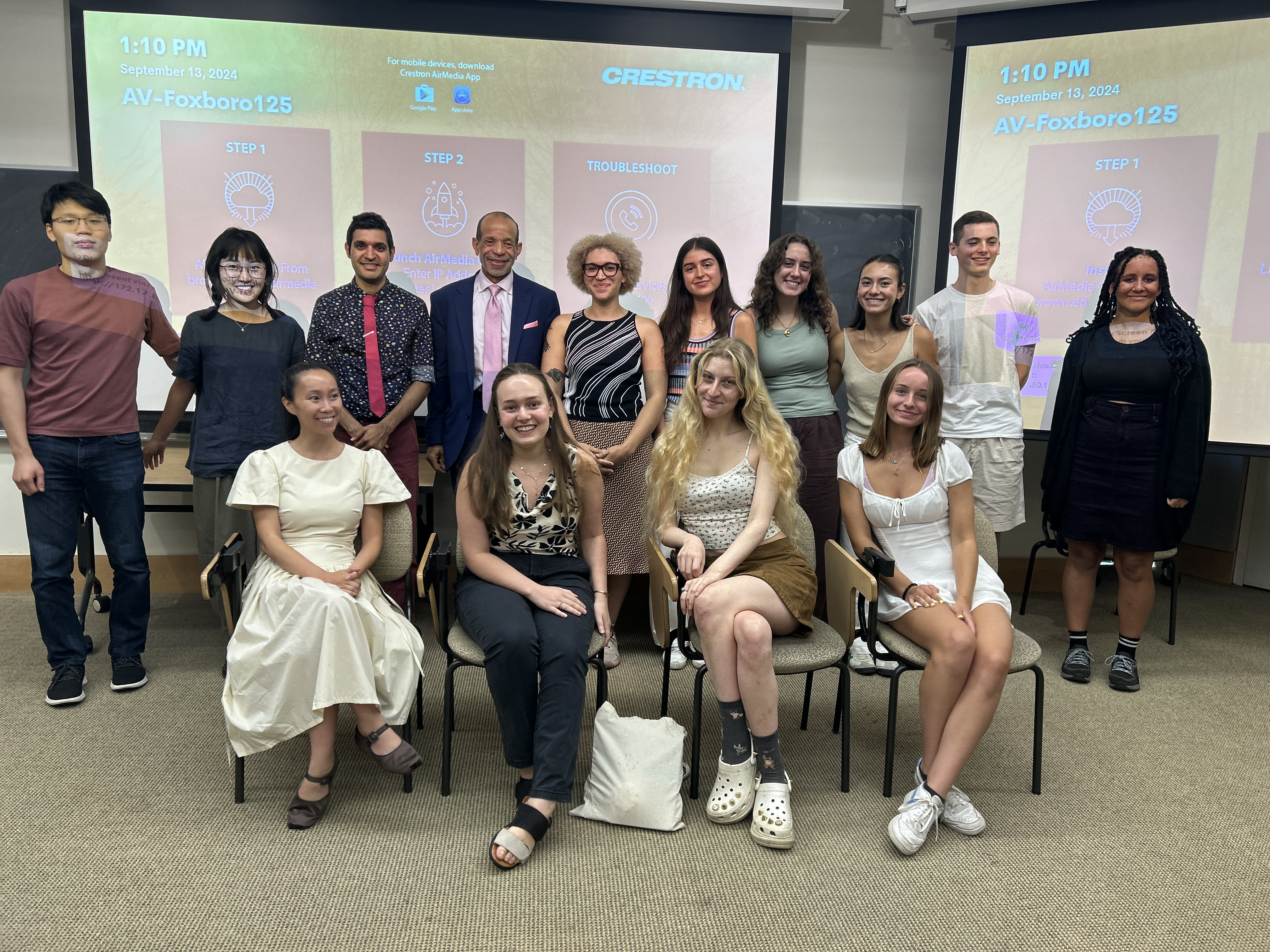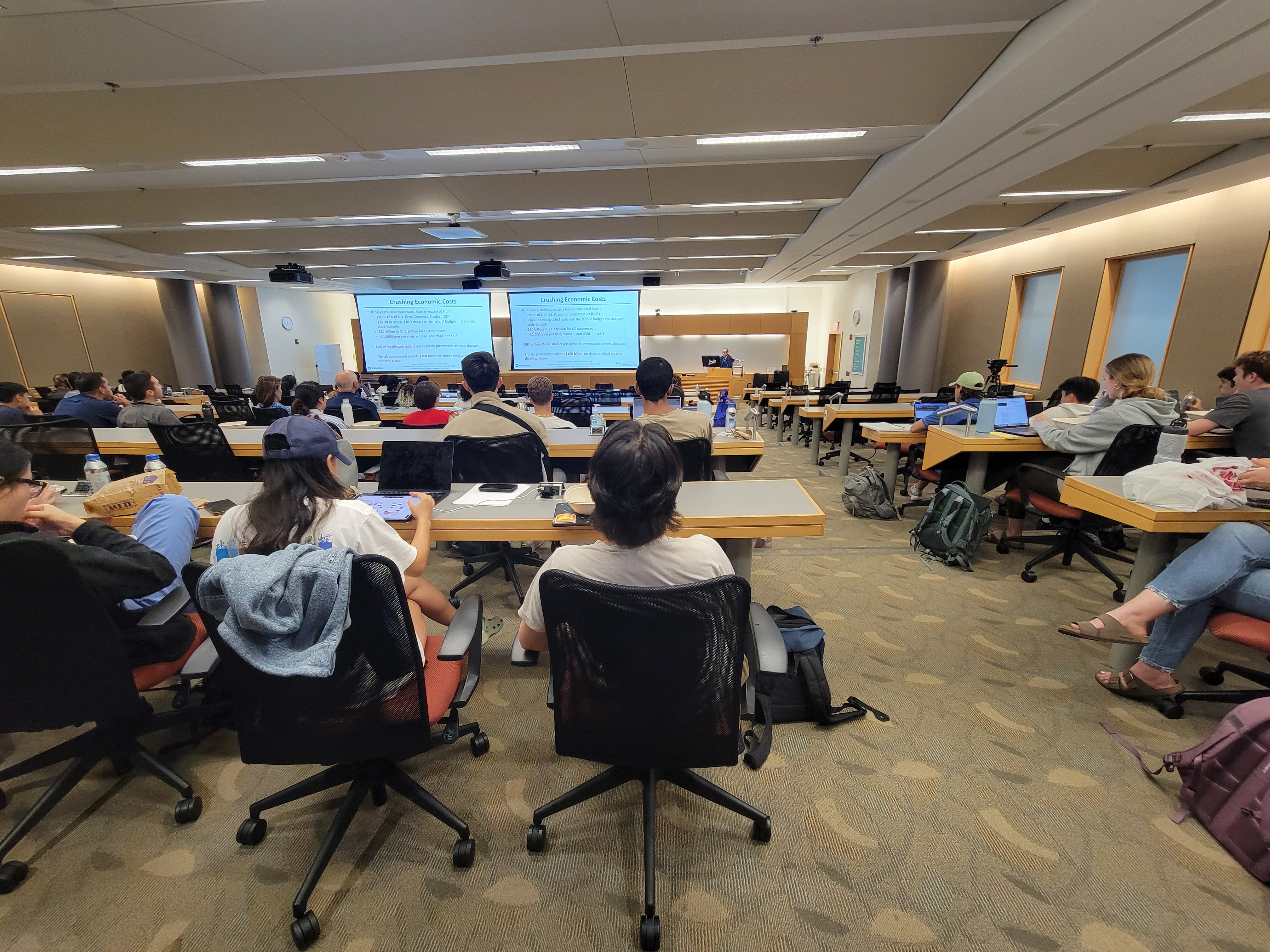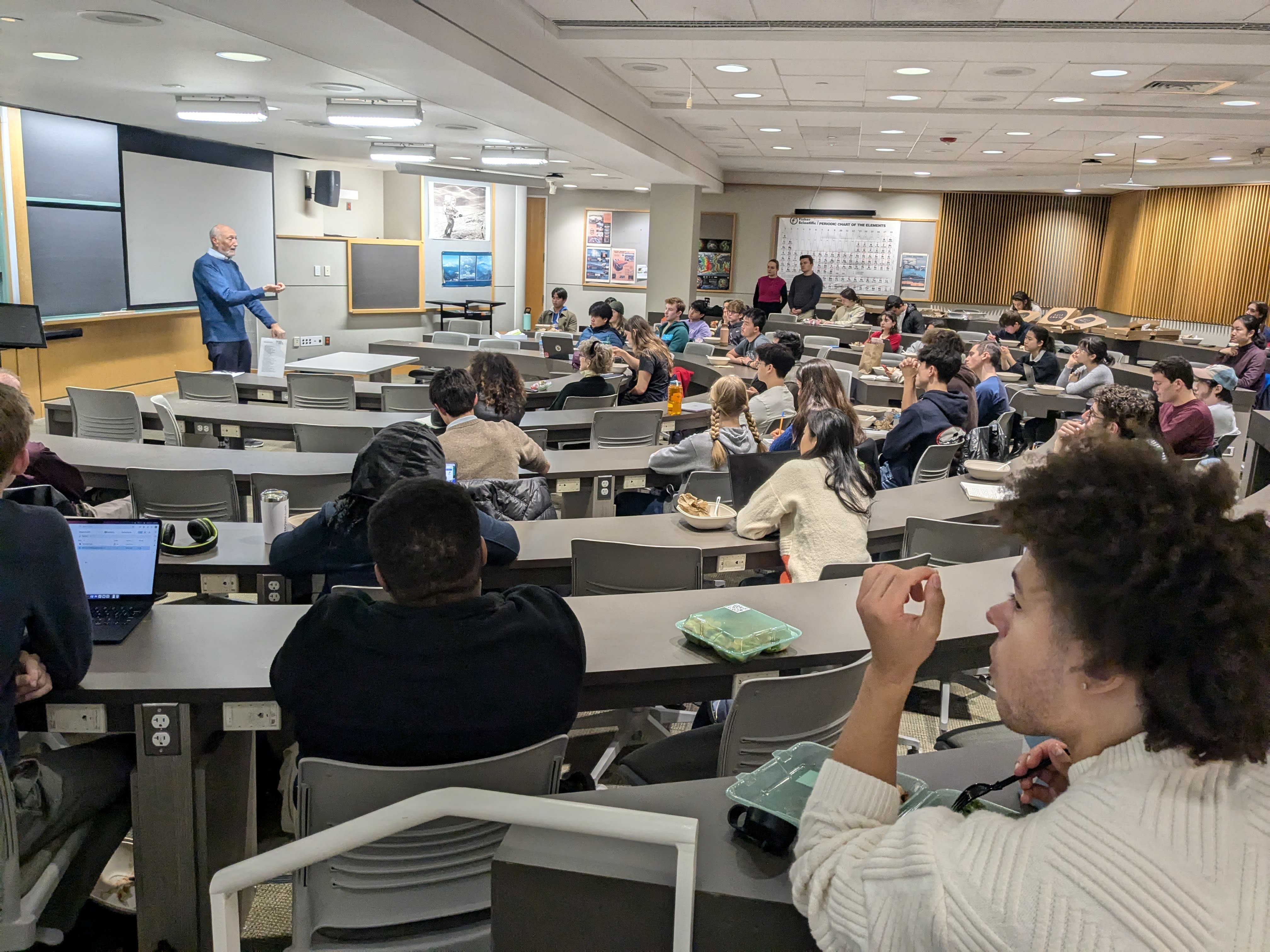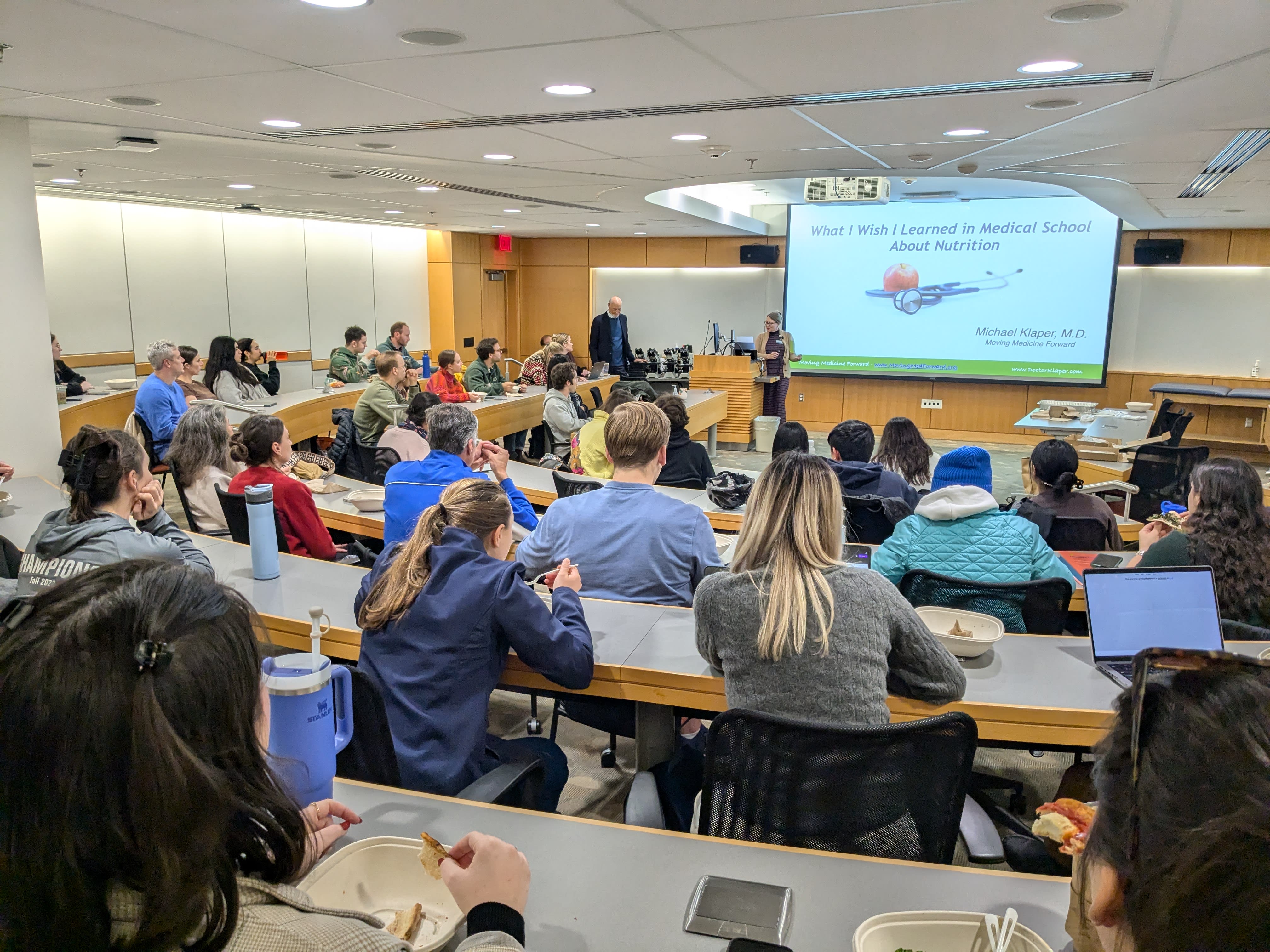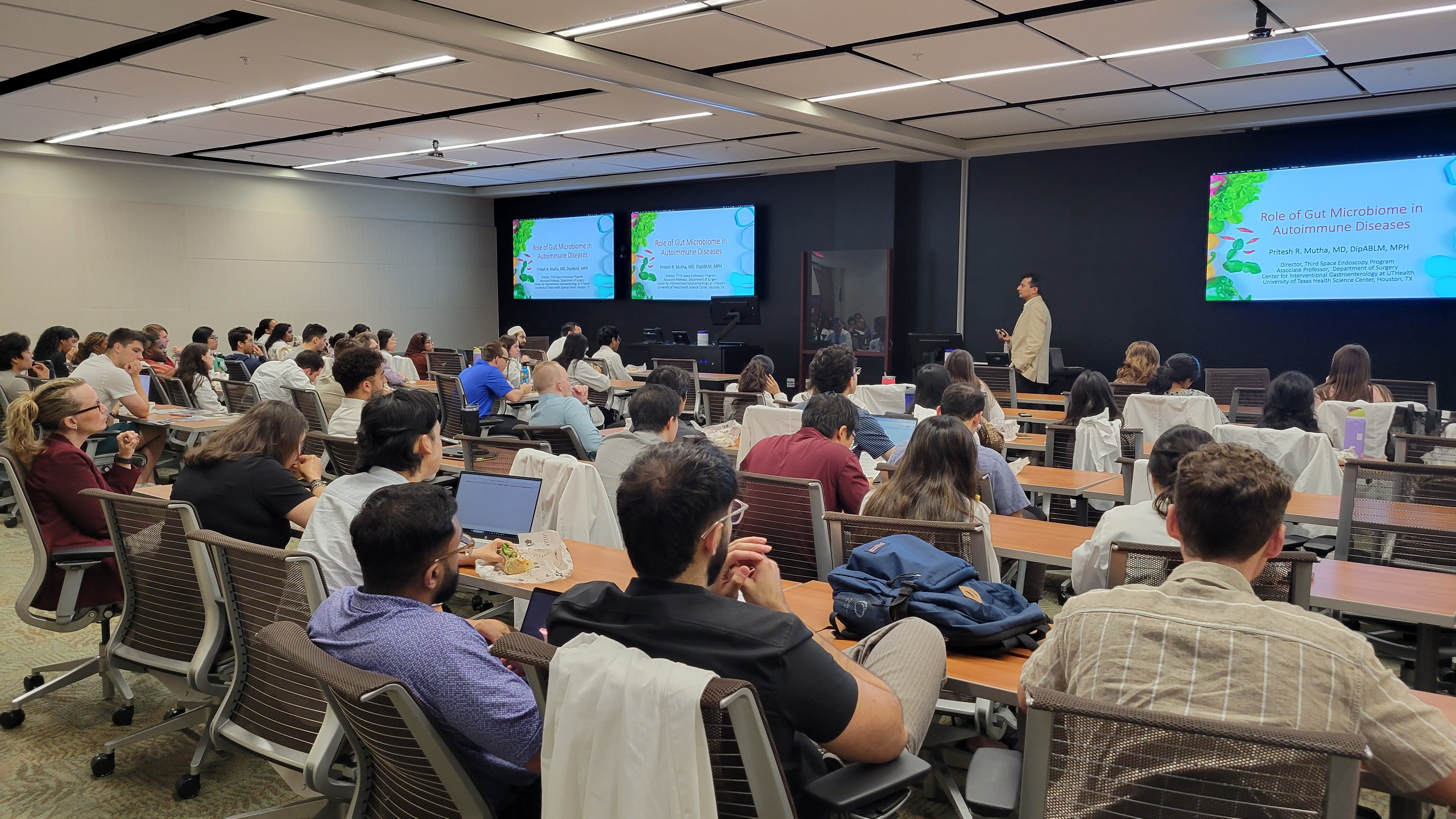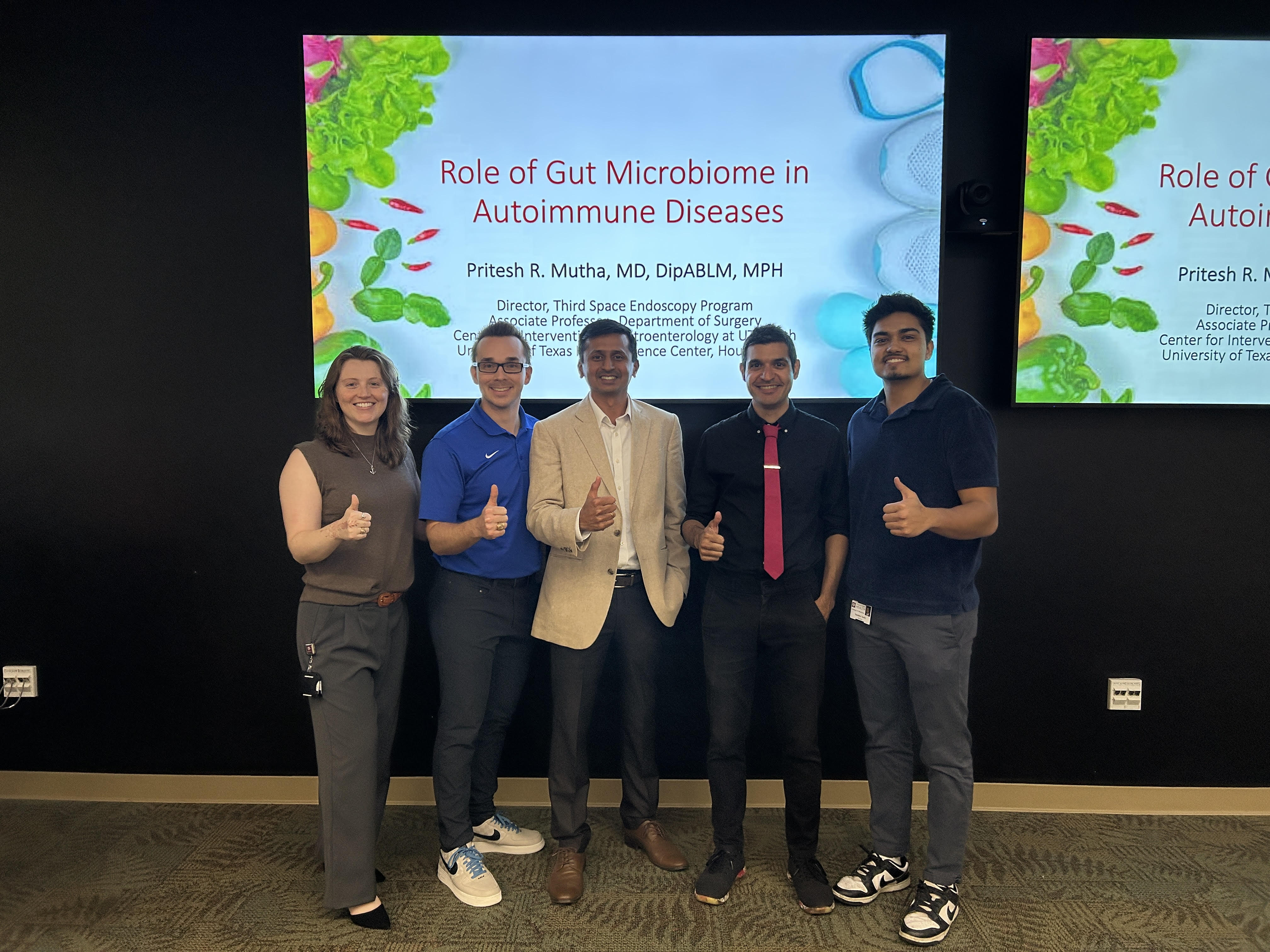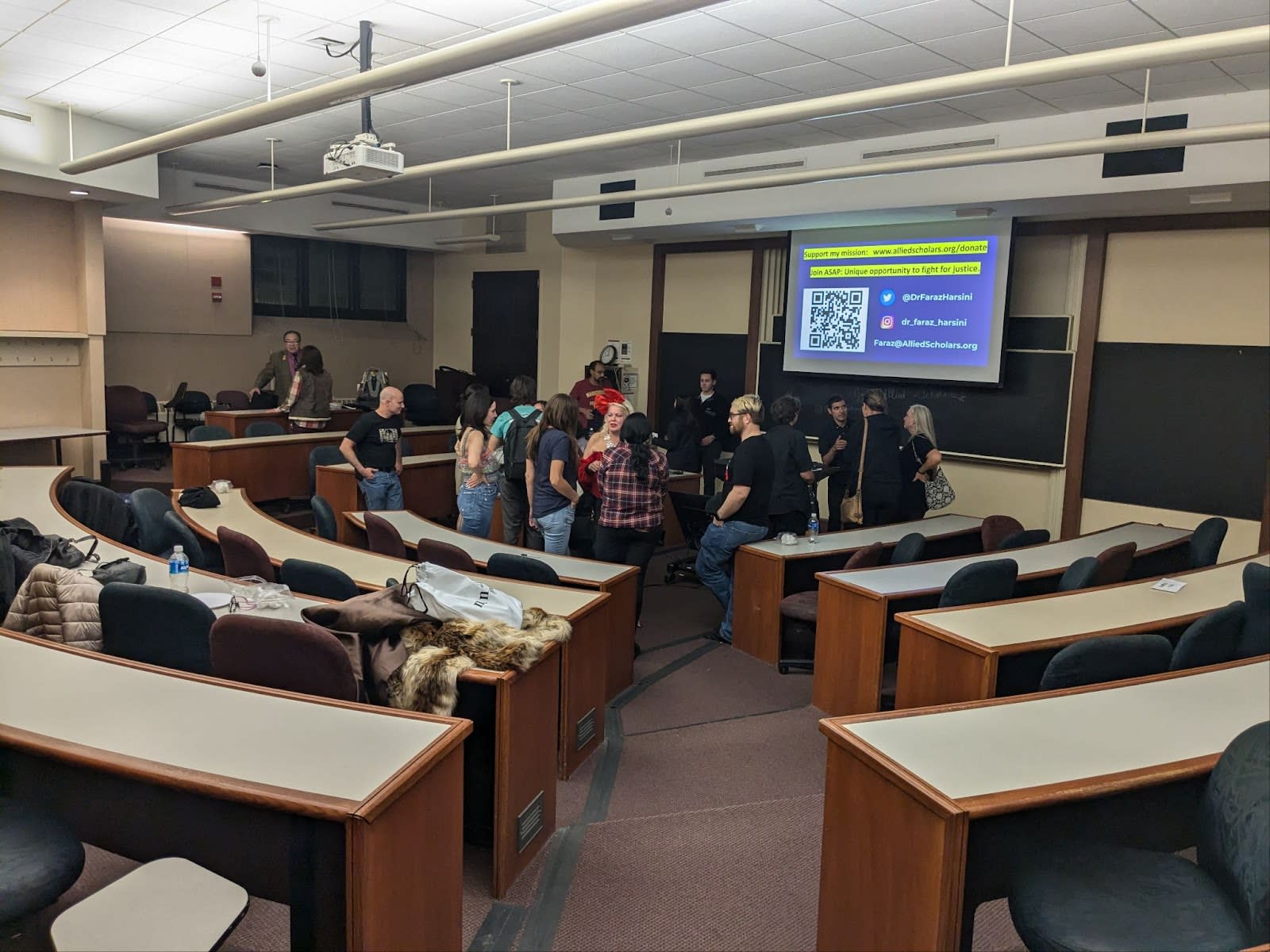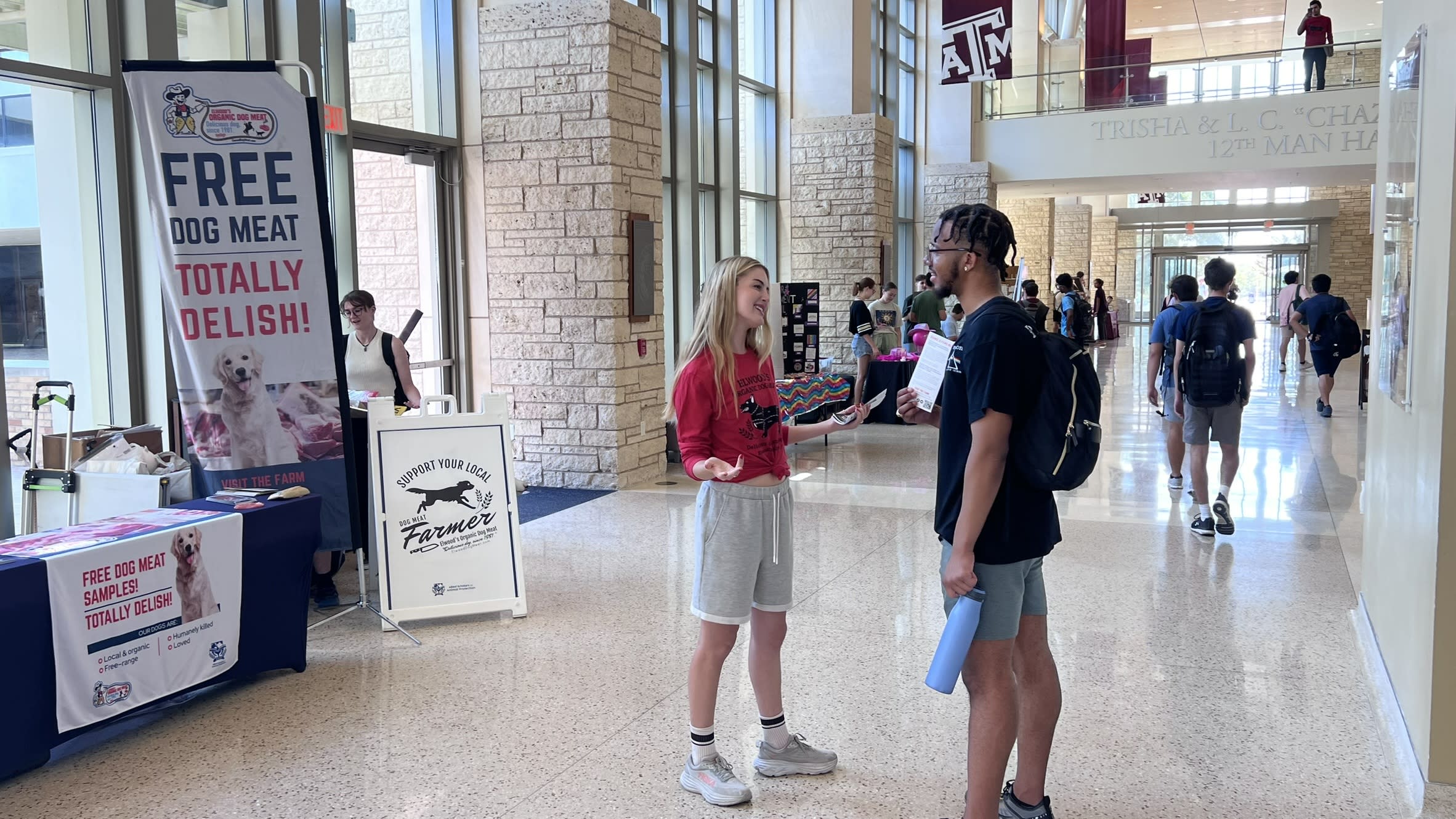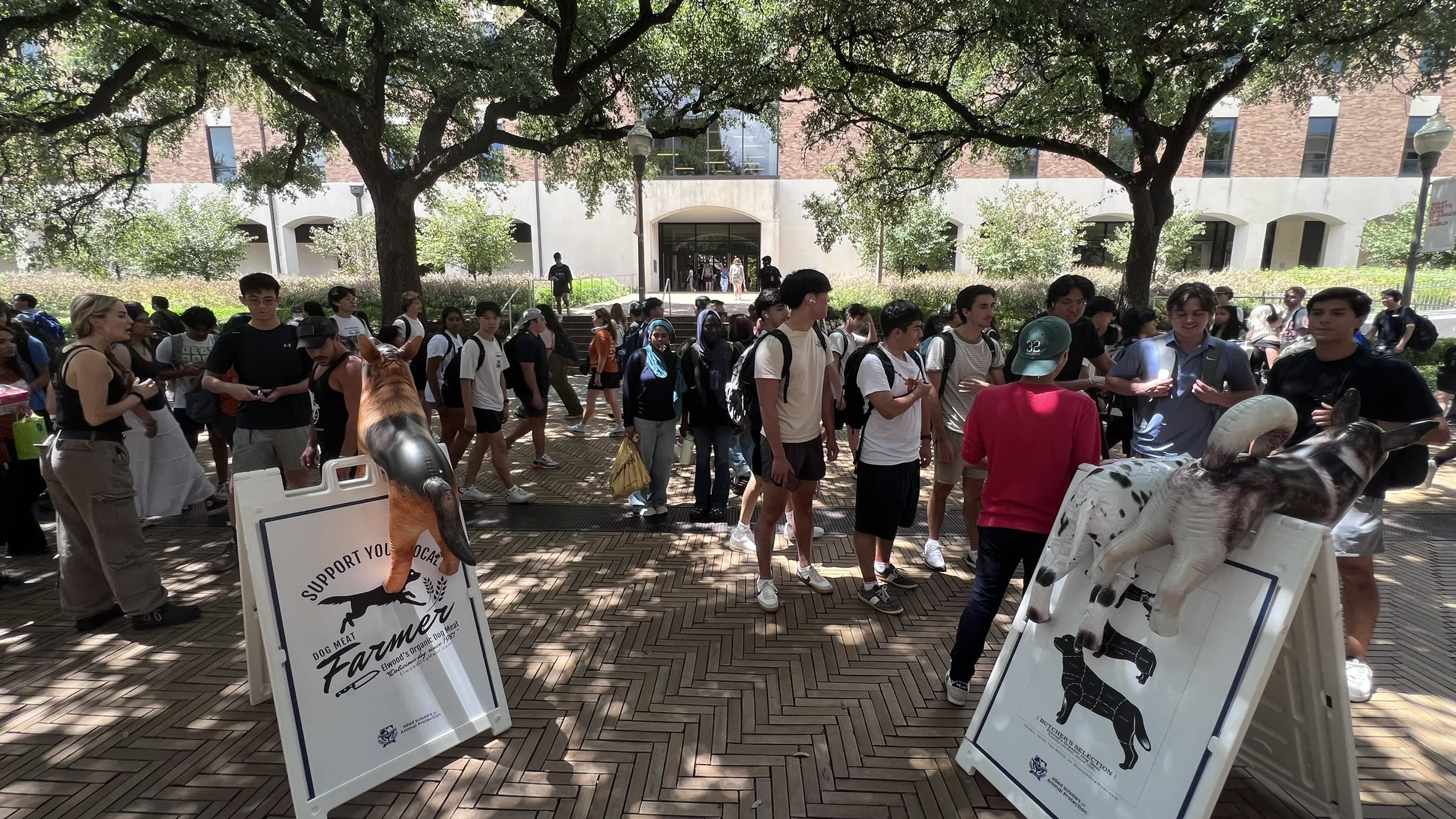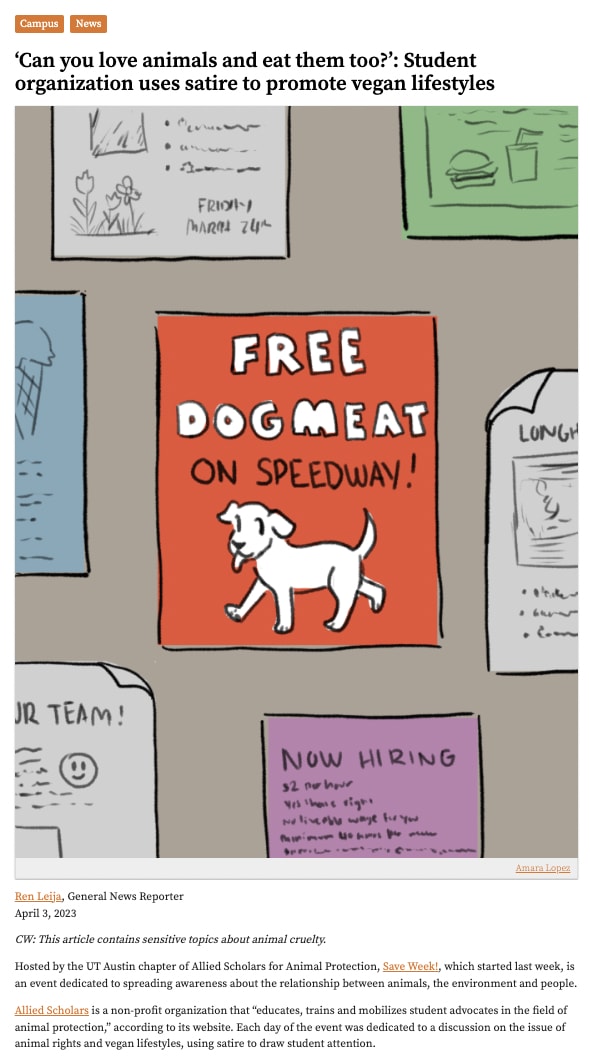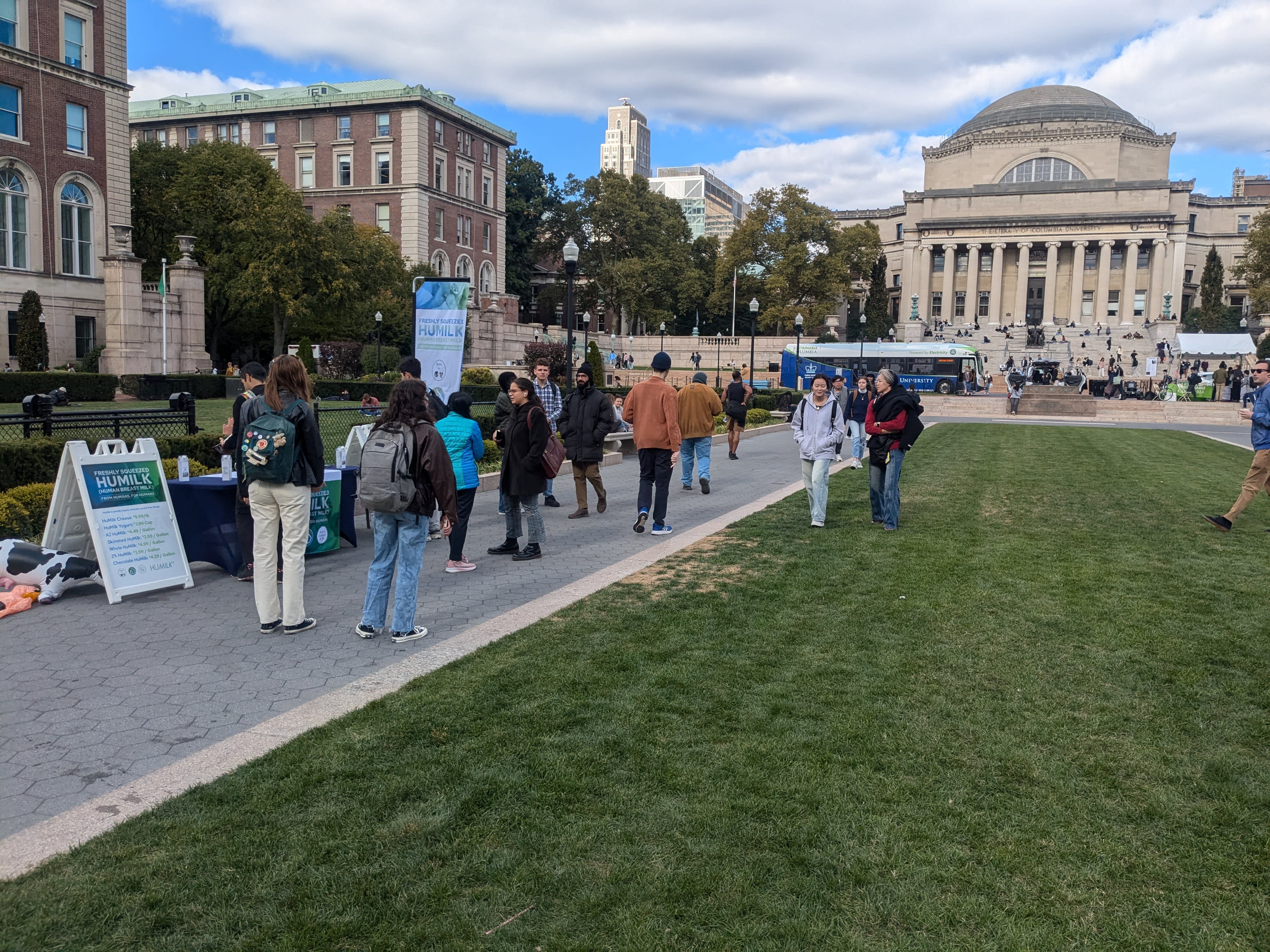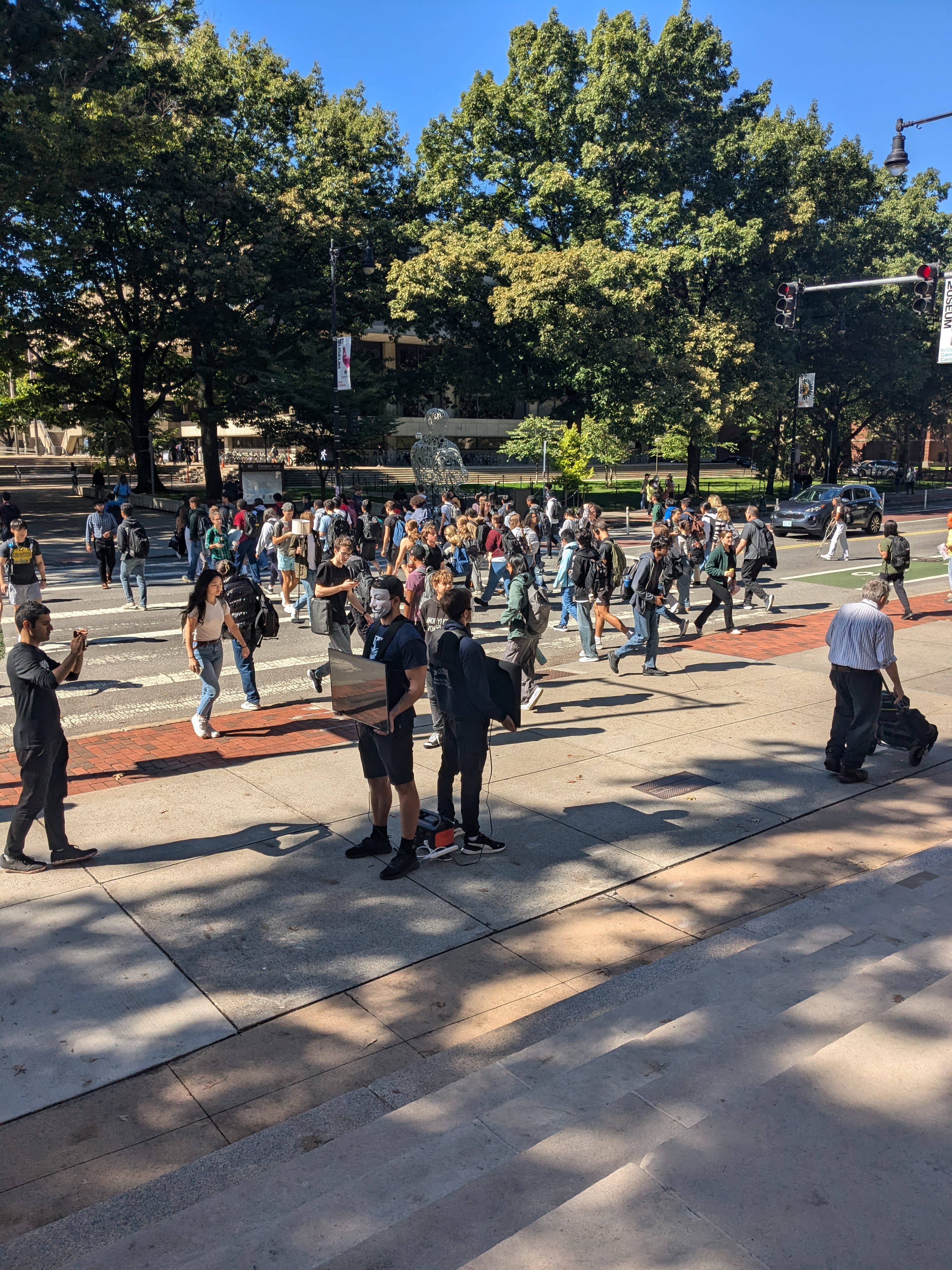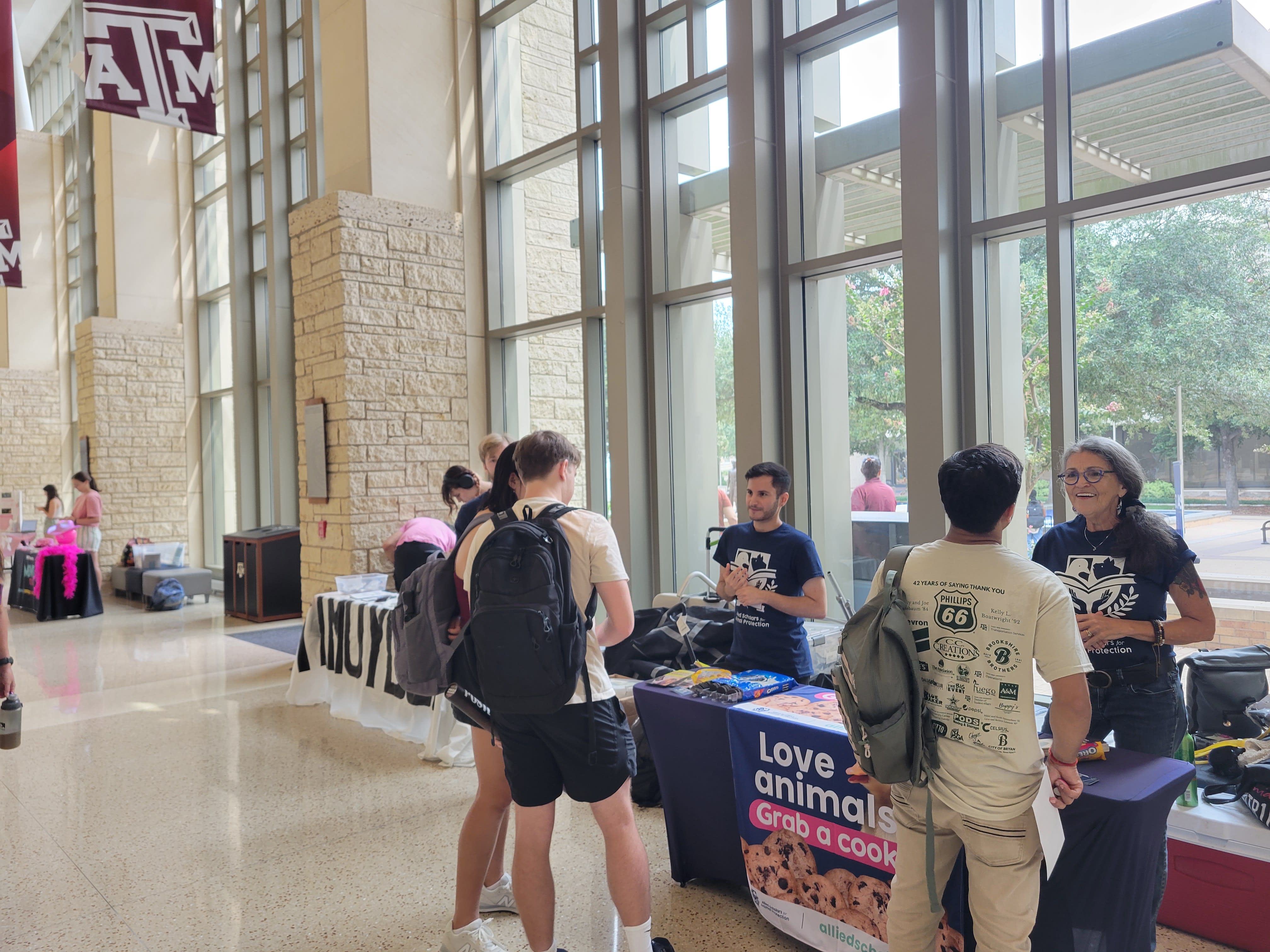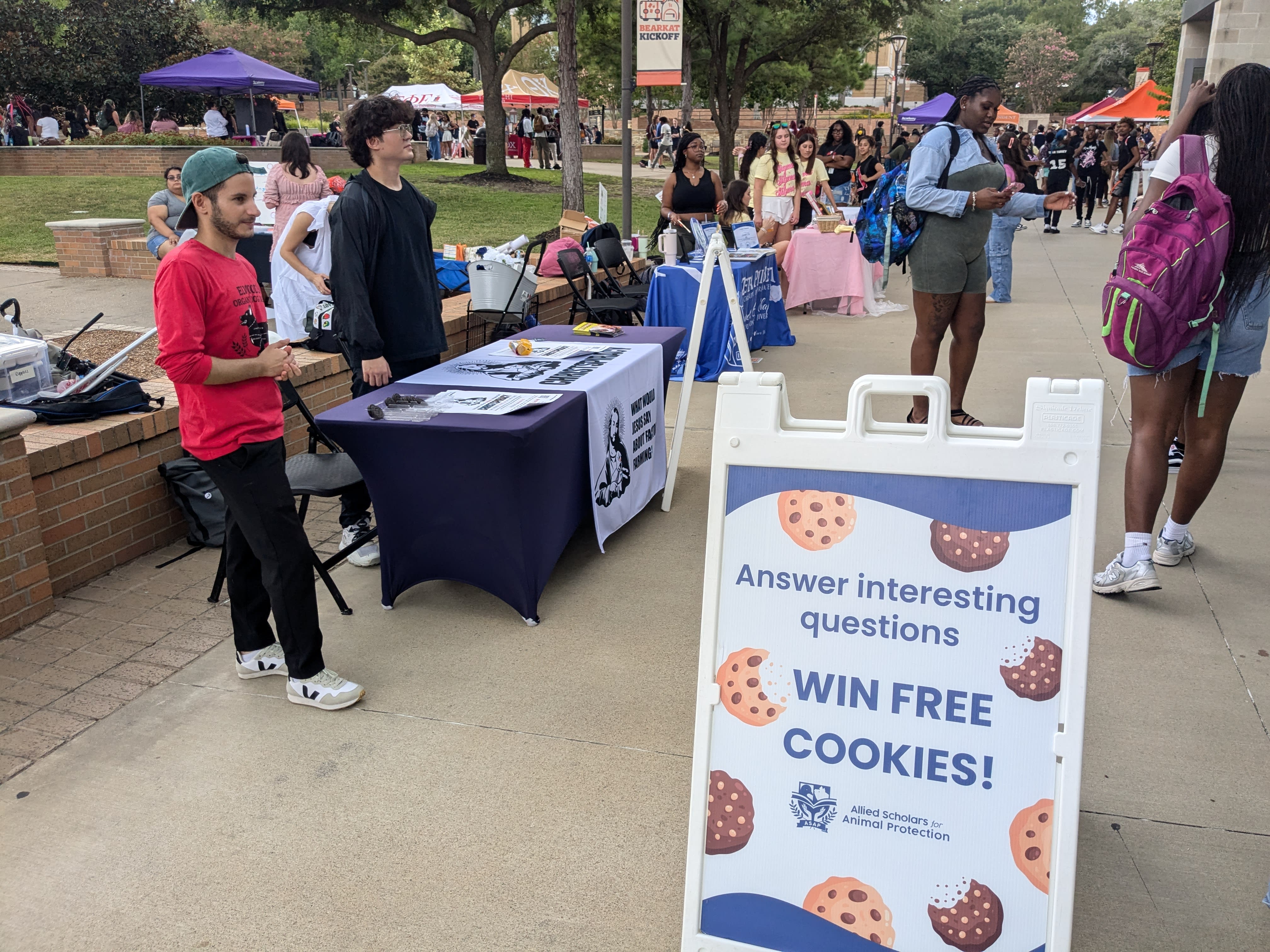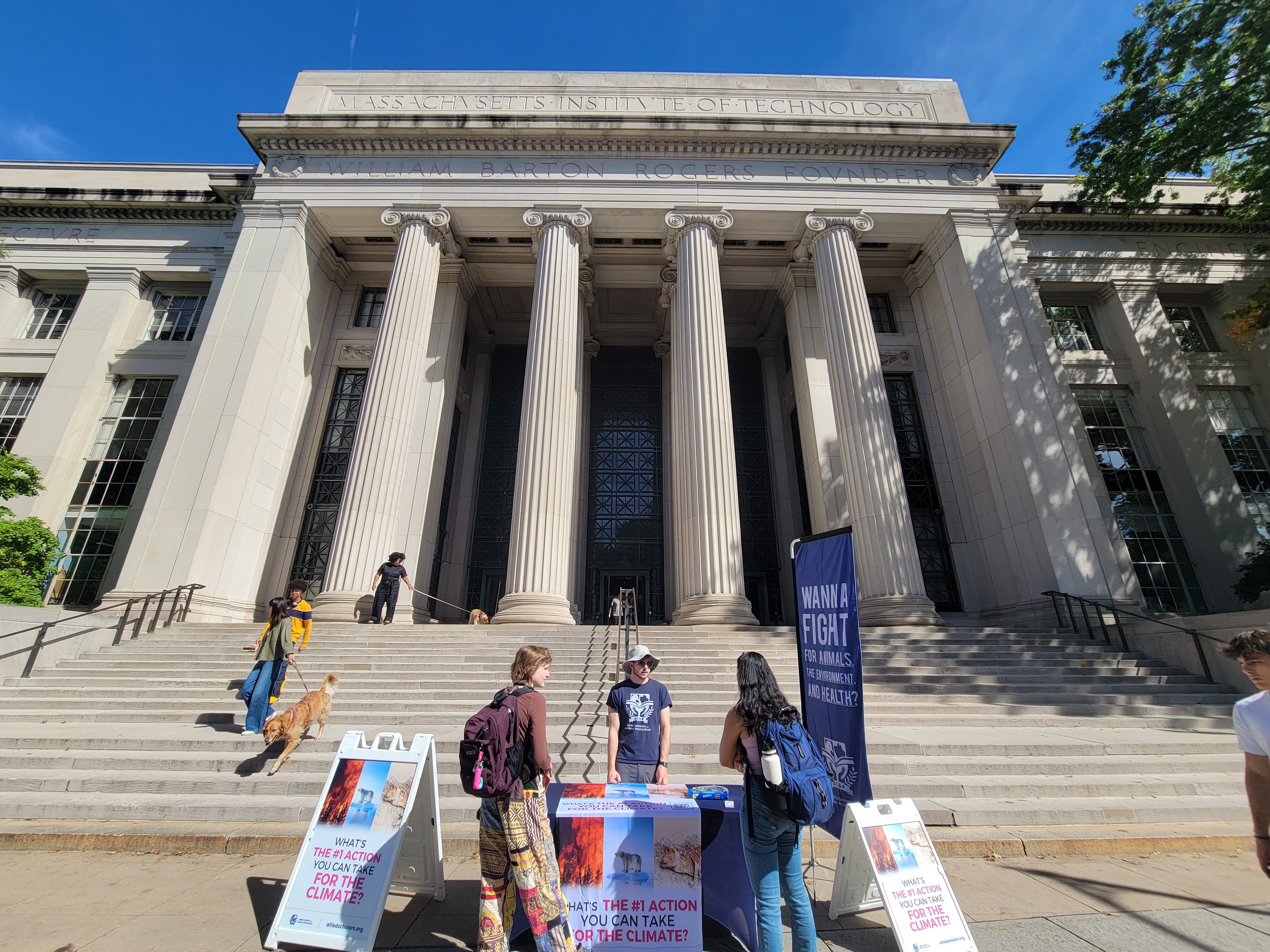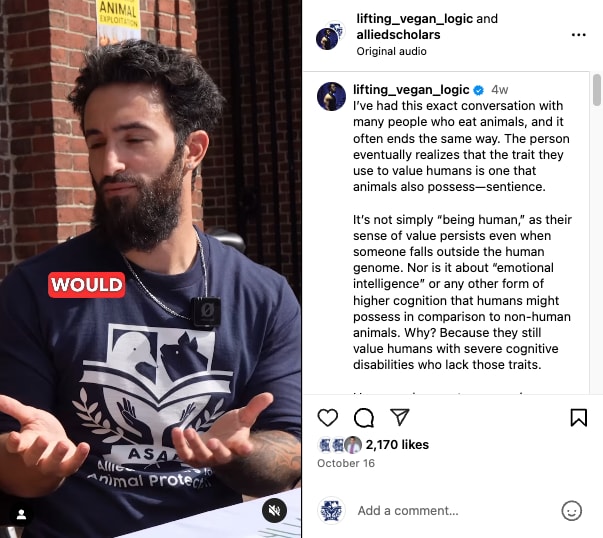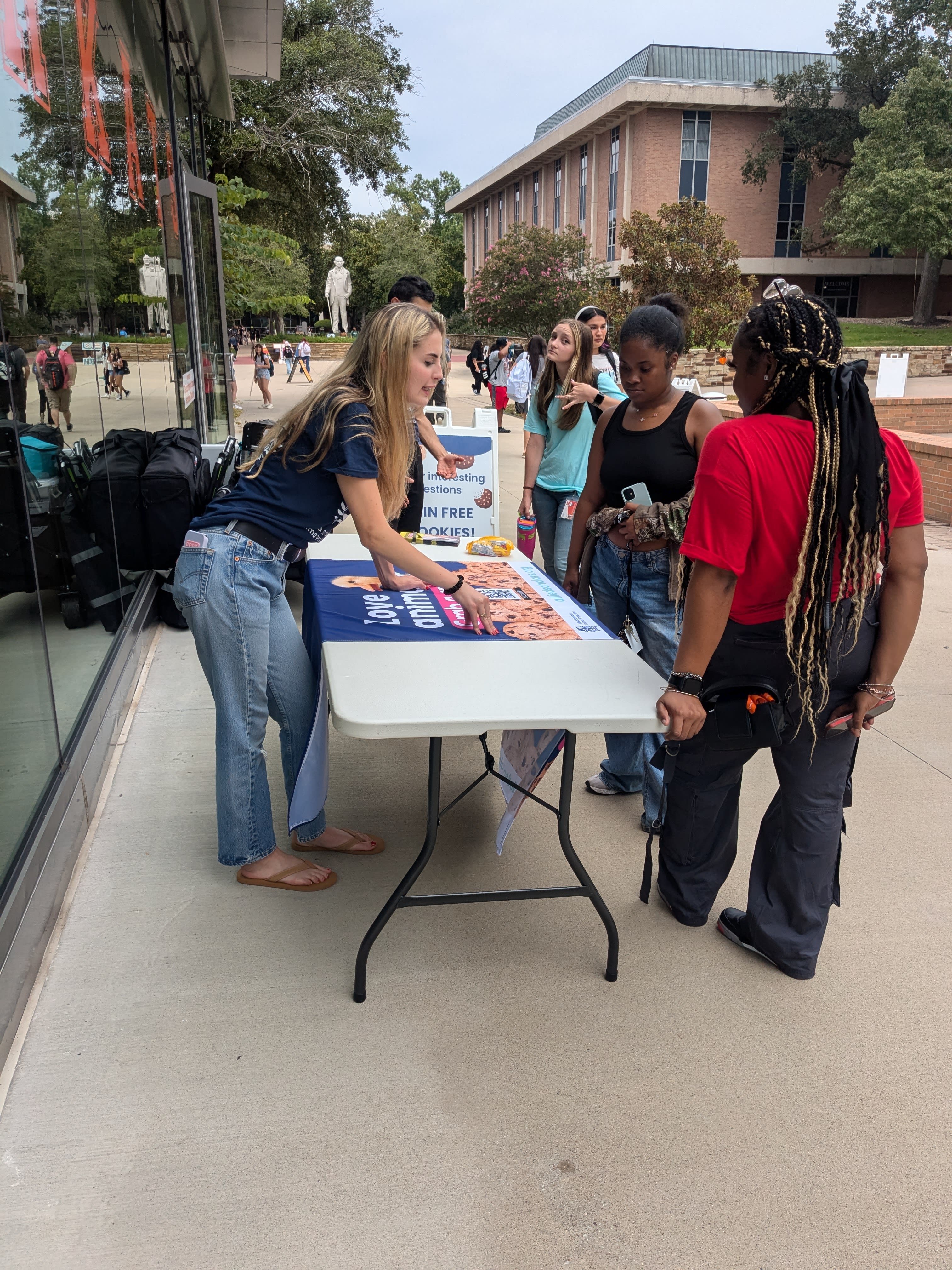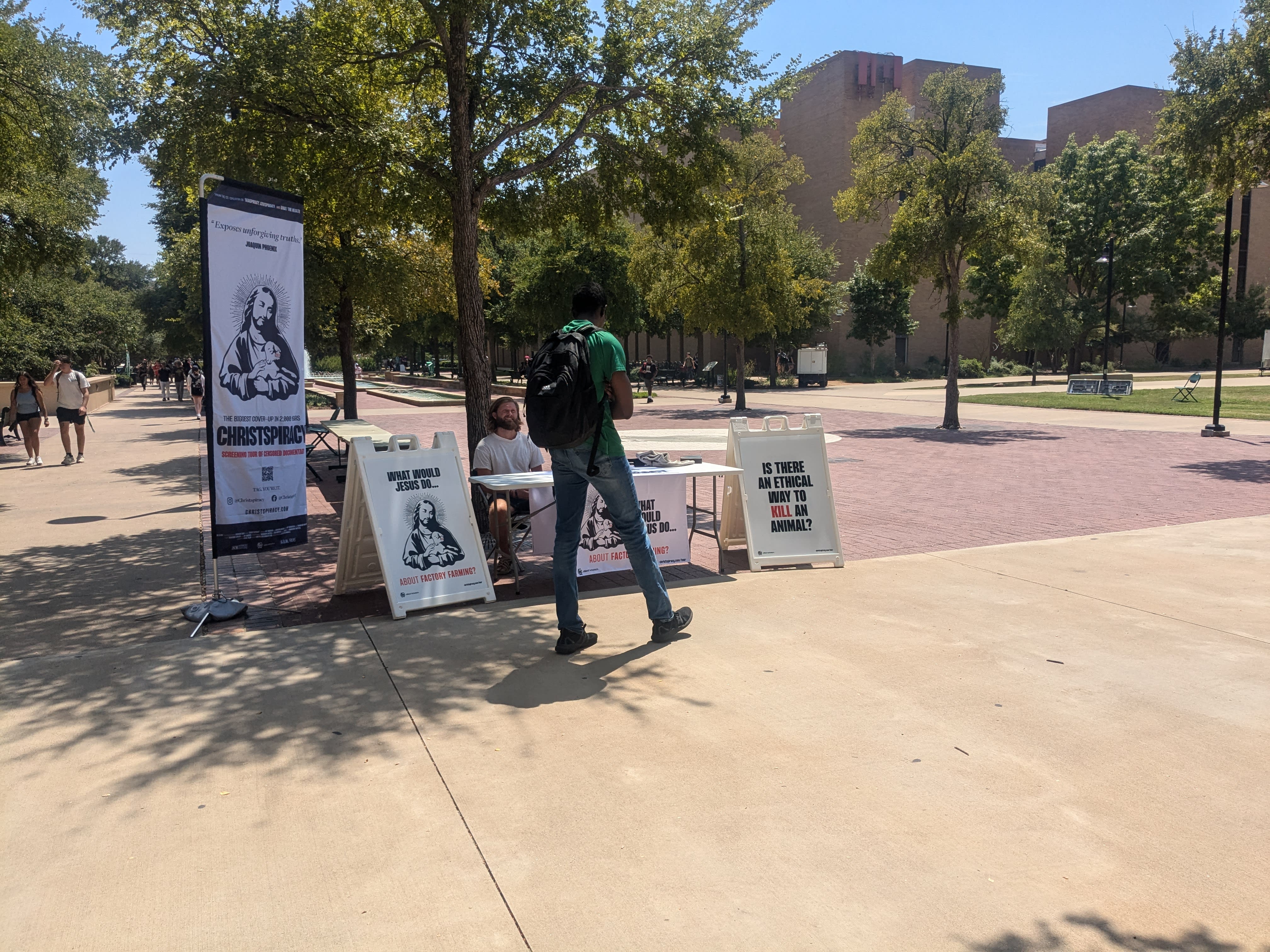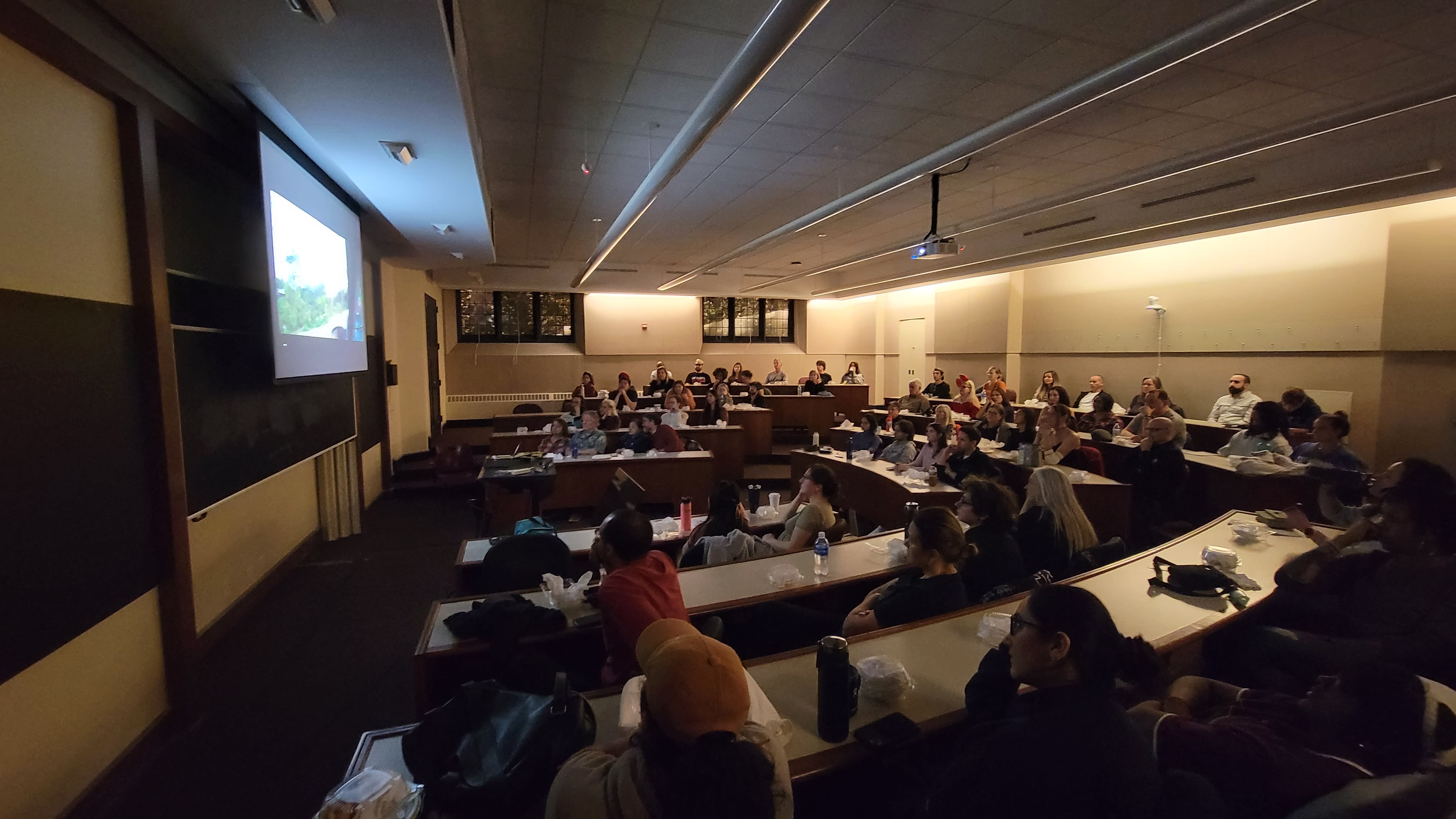Field Building for Animal Rights - Fall 2024 Updates
By Dr Faraz Harsini, Benny Smith @ 2024-11-18T20:13 (+10)
This fall, Allied Scholars for Animal Protection (ASAP) made animal advocacy impossible to ignore on university campuses. We traveled across Texas, the Northeast, and the Midwest, empowering students to make animal advocacy a conspicuous part of campus discourse. We will soon visit our emerging chapters at the University of Arizona and UC Berkeley.
Our recent report on the state of animal advocacy in universities showed that there was virtually zero animal advocacy activity on college campuses in Spring of 2023 (see this Faunalytics summary of our report).
That’s why we are building the very first infrastructure for SYSTEMATIC animal advocacy in universities, training the next generation of influential advocates.
We visited the following universities across the country. Our goal is to expand to the top 100 universities by 2028.
- Babson College
- Brown University
- Columbia University
- Dartmouth College
- Harvard University
- Massachusetts Institute of Technology
- Ohio State University
- Sam Houston State University
- Texas A&M University
- University of Chicago
- University of North Texas
- University of Pennsylvania
- University of Wisconsin-Madison
- UT Austin
- Yale University
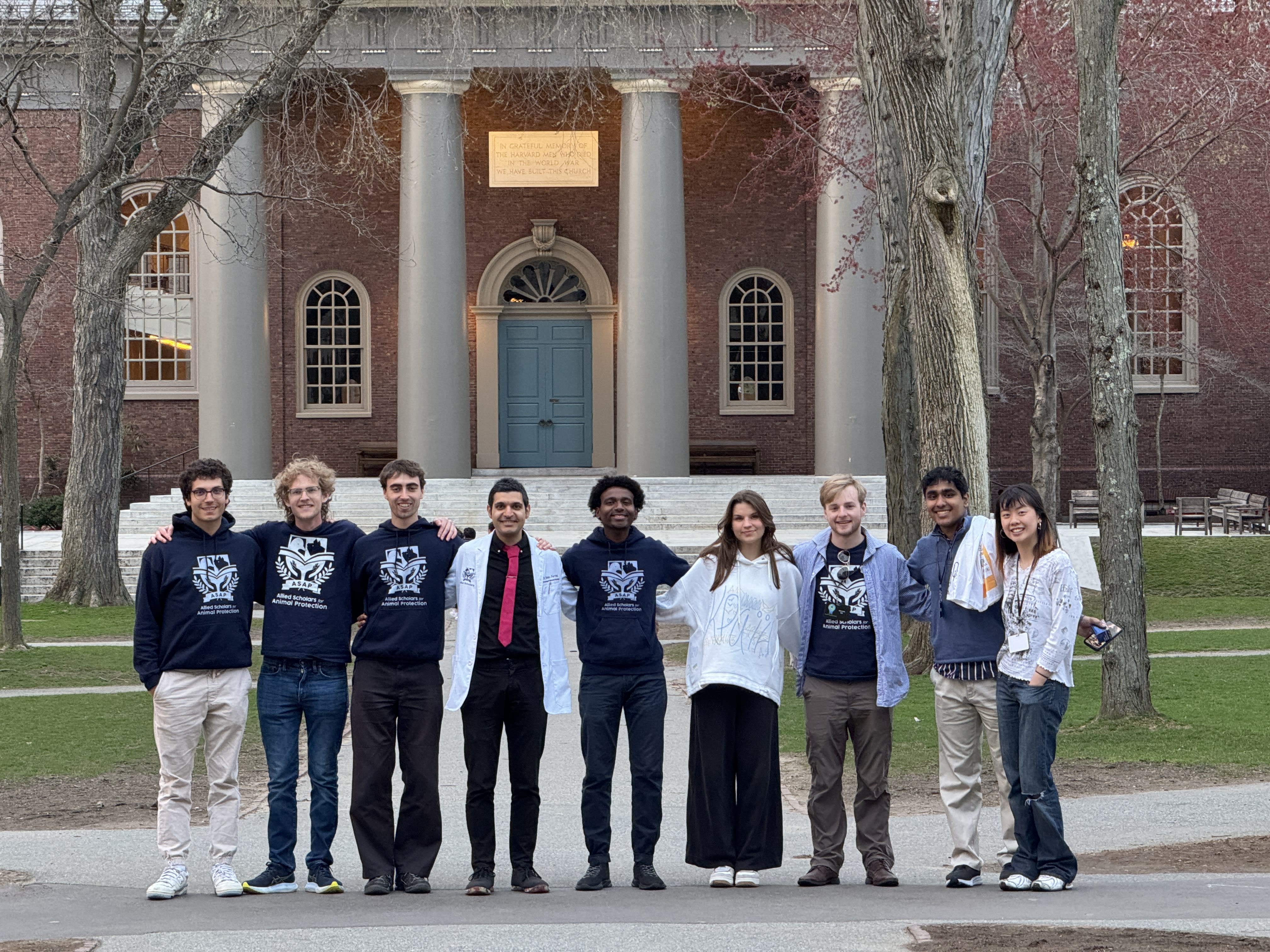
Link: Our donation page. All donations will be matched 100%, so that a $1 donation becomes $2!
ASAP’s Fall 2024 Programming
Medical Education
Why medical education? We're glad you asked!
Do you know what #1 cause of death is for our species?
Heart disease! It’s responsible for 13% of the world's total deaths. Heart disease, along with other top causes of mortality and morbidity such as diabetes, obesity, and many cancers, are largely preventable. A plant based diet can significantly reduce the risk of these diseases.
Plant-based diets also significantly reduce the risk of zoonotic diseases, pandemics, and antibiotic resistance. It is insane that this is virtually never discussed in medical schools.
We bring education on this issue to universities and systematically train undergraduate and medical students. Our goal is to do this at every ASAP chapter, every semester. We want to inspire the next generation of influential doctors, alt protein scientists, policymakers, lawyers, CEOs, and funders!
This semester we brought renowned physicians such as Dr. Michael Klaper, Dr. Kim Williams, and Dr. Pritesh Mutha to college campuses and medical schools to reform the medical field’s longstanding ignorance of preventive medicine.
This semester, our medical lectures to undergraduates and medical students included the following:
Dr. Kim Williams, former President of American College of Cardiology, at Brown University. Dr. Williams’ expertise in cardiology is relevant to preventing America’s top killers.
See this video for the full lecture!
Dr. Michael Klaper, former NASA nutrition adviser, at Brown University, Babson College, Columbia University, and NYU. Dr. Klaper is a compelling speaker with decades of experience.
Dr. Pritesh Mutha at Texas A&M University – at a school whose students are nicknamed the “Aggies” to signify their focus on agriculture, it’s perhaps more important than anywhere else to spur discussion of plant-based nutrition. Texas A&M is also one of the largest universities in the world.
Additionally, at Brown, we kicked off the semester with a memorable screening of The Game Changers on the Main Green! Our resourceful students gained access to a big screen and projector so that students could watch the film outside while enjoying a plant-based dinner from Plant City. 🙂
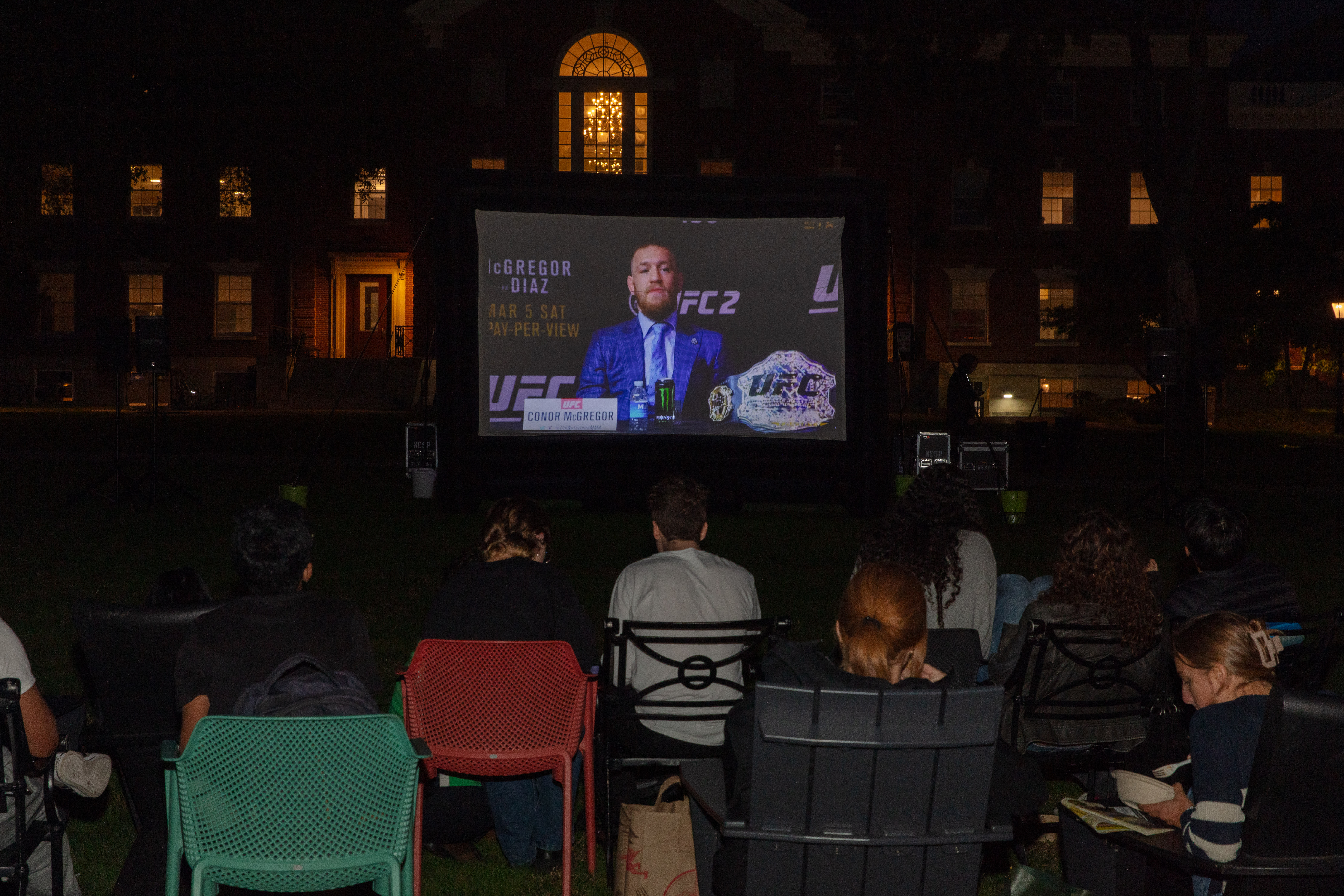
Guest Lecture with Jeff Sebo
This week, we’re excited to host a lecture with Prof. Jeff Sebo of NYU’s Center for Mind, Ethics and Policy! Please join if interested. 🙂
Dominion Screenings!
Across 15 campuses nationwide including Columbia, MIT, Ohio State, and Texas A&M, students flocked to our Halloween event to watch a spine-chilling movie. :)

Little did they know, the movie is terrifying because it shows what really happens on animal farms!
Nationwide, we got OVER 230 PEOPLE to watch Dominion. There is evidence from Faunalytics that watching footage like this leads to attitude and behavior changes.
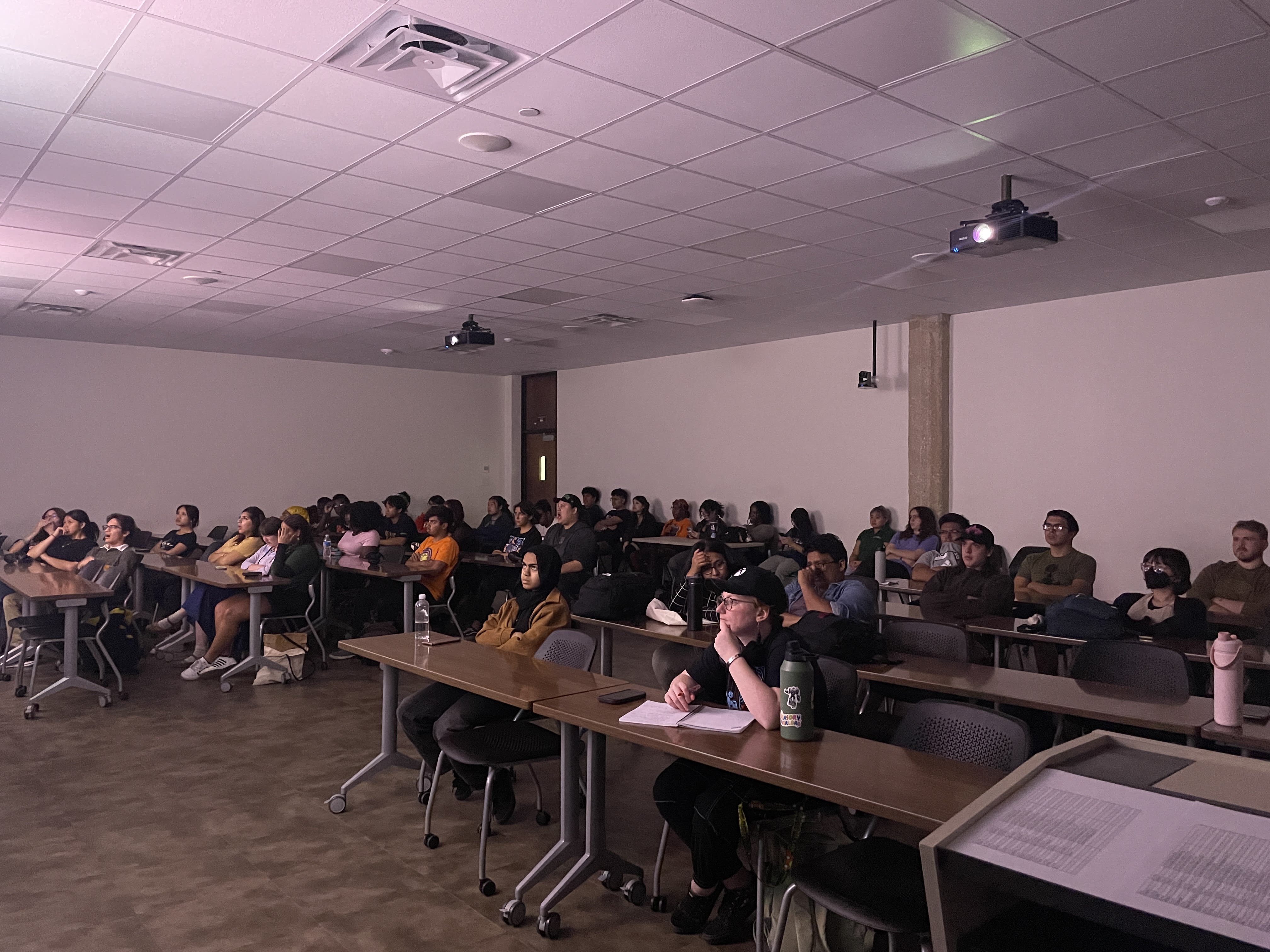
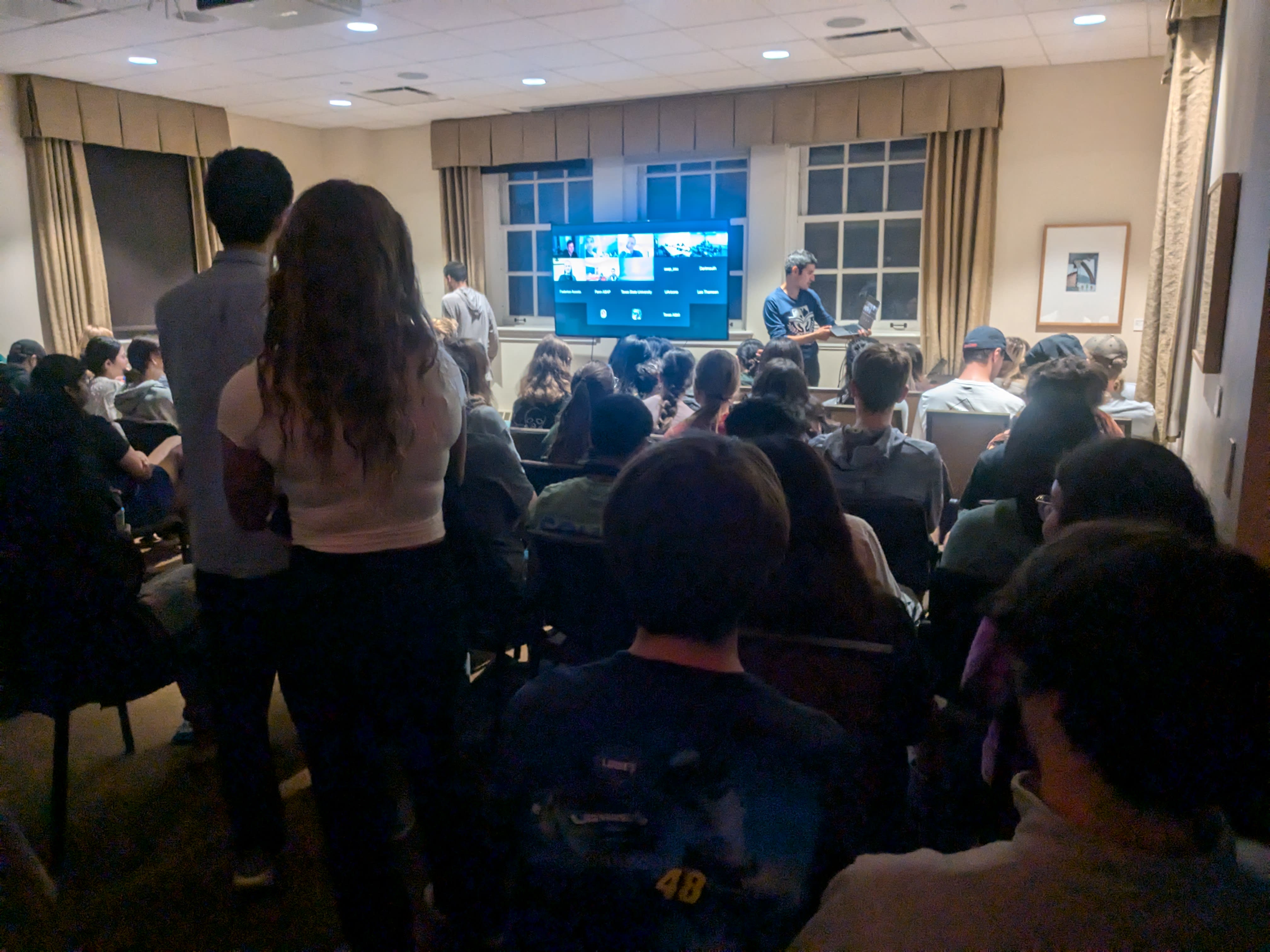
The energy was electrifying and somber at our largest screenings. After the film, we hosted a Q&A with Dominion directors Chris Delforce and Shaun Monson.
Impactful Careers
We have organized dozens of talks about impactful careers and alternative proteins, and several students have been inspired to pursue careers in relevant fields as a direct result of our events!
We also provide 1 on 1 career mentorship to ASAP students.
Recruiting on Campus
Our thought-provoking campaigns included:
Elwood’s Organic Dog Meat — an ASAP classic. :) This event takes people by surprise and leads to lots of discussion throughout campus and on social media. It often gets coverage in student newspapers as well!
Our "Elwood's Organic Dog Meat" event at Texas A&M. Our "Elwood's Organic Dog Meat" event at UT Austin. Article in the Daily Texan about our event. Human Breast Milk — a powerful demonstration used to discuss the shocking abuses of the dairy industry.
Cube of Truth — this technique from Anonymous for the Voiceless draws in passerby to view footage of animal exploitation industries.
"Love Animals? Grab a Cookie!" — a welcoming, friendly approach that invited students to join us for a sweet treat while learning about ASAP’s mission and goals.
"Answer Interesting Questions, Win Free Cookies!" — an engaging activity that helped initiate discussions with students who might not have approached otherwise, sparking curiosity and compassion.
We spoke with students about the impacts of our food system on the earth’s climate.
We were thrilled to bring exciting guest appearances and screenings to campuses:
- Lifting Vegan Logic joined us at Harvard, where he brought his unique approach to animal advocacy and connected with students on a personal level.
Jamie Logan, an influential animal advocate, accompanied us at many schools, inspiring students with her powerful presence.
We also screened Christspiracy and hosted director Kameron Waters for a Q&A, sparking in-depth discussions about the documentary’s critical messages. This was particularly impactful at our Texas chapters where there are large Christian communities.
We need to fix the broken animal advocacy movement in universities. Our model is scalable and cost effective, and most importantly, it works!
How can ASAP use marginal funding?
We're aware of the scarcity of our people, time and money. That’s why Allied Scholars keeps costs low and opts for the most cost-effective solutions to our organizing challenges.
Your donations will be 100% matched and DIRECTLY help us expand our team, which means doubling the number of our chapters, reaching tens of thousands more students each semester, and educating thousands of students in the largest and most prestigious universities. We’ve done all of this with only one full time employee! We urgently need to hire additional people to support our expansion.
We rely on volunteers when we visit schools. So far we have only one full time manager during travel. Our visits to campuses often require us to work 12 hour days, and sometimes we still have to drive between cities at night.
Here’s a rough breakdown of what funds can accomplish at ASAP:
- $1 - two cookies to be given out at one of our recruiting tables = 2 conversations about animal protection
- $100 - editing one social media video which reaches thousands of people
- $150 - high-quality, eye-catching demonstrations or posters to advertise an event on campus = thousands of impressions
- $350 - sponsor a well-attended medical lecture or documentary screening = educating 20 - 100 students
- $500 - stipend for one of our student chapter leads, so that they can focus on activism as we expand to more groups!
- $1,000 - tabling supplies for a new chapter such as a table, tablecloth, table runners, posters, and brochures. Alternatively, we can purchase TVs and a battery to help students play farm footage in public with this amount, or sponsor a student to attend a conference to advance their careers.
- $10,000 - Sponsor in-person programming at 5 schools, reaching 20-35k students, hundreds of conversations, hundreds of posters and yard signs, and making animal advocacy impossible to miss.
Please consider supporting ASAP this giving season. All donations will be matched 100%, so that a $1 donation becomes $2!
SummaryBot @ 2024-11-19T17:54 (+1)
Executive summary: Allied Scholars for Animal Protection (ASAP) is building systematic animal advocacy infrastructure across universities through campus events, medical education, and career development, with demonstrated success in engaging students and plans to expand to top 100 universities by 2028.
Key points:
- Prior to ASAP's work, there was virtually no animal advocacy activity on college campuses (Spring 2023); they've now established presence at 15 major universities
- Key programs include medical education featuring renowned physicians discussing plant-based nutrition, Dominion screenings (reaching 230+ people), and career development in animal advocacy
- Successful engagement tactics include provocative demonstrations (e.g., "Elwood's Organic Dog Meat"), documentary screenings, and guest lectures, with documented impact on student career choices
- Operating with just one full-time employee, ASAP demonstrates cost-effective scaling ($1-$10,000 funding tiers) with matched donations
- Immediate goal is expanding staff to support growth, with specific focus on reaching tens of thousands more students each semester at prestigious universities
This comment was auto-generated by the EA Forum Team. Feel free to point out issues with this summary by replying to the comment, and contact us if you have feedback.
